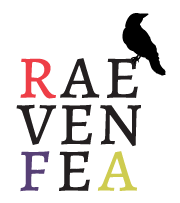Quilting, Privilege, and Doing What You Love
When I first took up quilting, in the back of my mind was this idea of the quilter as a prudent housewife making quilts with clothing scraps to provide warmth for her family because resources were scarce. The truth is that rather than prudent, quilting is profligate, with a $3.58 billion industry supplying all manner of goods that a “true” quilter needs. “But historically, quilt makers were poor, putting together what they had,” innumerable sources claim. This too is a falsehood, as it has almost always been the wealthy who had the money to either buy the yardage of printed goods needed for a wholecloth quilt or the idle time to sew one from small scrap pieces. Thus, quilting is neither quick nor cheap, either historically or in a modern context. There are exceptions; even the poor have produced utility quilts, and some may have made livings making quilts, but they are not so numerous as the popular mind believes.

On the other side of the coin is the idea that every stay-at-home mother or underemployed crafter can somehow make a profitable business out of their sewing or crafting. The idea that even in a marketplace flooded with goods made cheaply in the global sphere, somehow, the small resurgence of the homemade, local market (driven, mind you, by privileged buyers who can afford the premium to feed their eco-minded ideals) is the saving grace of craft, where goods you make in your spare time (at first) can grow into a business that is sustainable and profitable.
The real truth is that quilting is either an expensive hobby or a business at which one can barely break even if you pay yourself a living wage. The same can be said of most other crafts. But to anyone viewing the world of quilting online, this truth is hidden by a horde of blogs that extol the virtues of doing what you love and bringing in extra money for the household through crafting. That somehow, simply identifying quilting or crafting as a hobby means you aren’t fully embracing life; that doing so means you don’t have a place in the online community.
The average crafting/quilting blogger seems to be middle-aged, female, married to a man who works full-time, with children, Christian, and solidly middle-class (if not higher). She has disposable income with which to buy all of the latest and greatest crafting toys (or at least enough to make a good show of it on the blog), and lists some of what she makes for sale online. If one or more of the above aren’t true, she is either actively trying to resolve the disparity, or you don’t hear about his or her blog, because they’re not one of the cool kids.
I’d like to make some grand call to action, a war cry perhaps, for those of us who don’t fit that mold to unite and show the world we exist, but I won’t humor myself to assume I have such reach or influence in the online quilting blog sphere. Instead, I simply hope to inspire a little thought to burrow in your mind about the exclusivity of our world and the factors that lead to it.
Quilting is not full of economical housewives making due with what she has, nor is it a way to do what you love and make a solid living. Rather, it is a world of $3000 sewing machines, $10/yard fabrics, costs to produce a single quilt often over $100, sponsorships, prostituting crafty favors for a chance to either get published or draw more blog followers, making less than minimum wage just to compete with undercutting hobbyists and goods made in southeast Asia, and keeping up with Mrs. Jones.
Is that a bad thing? Who am I to answer, as I sit here on a blog that I have no aspirations to grow into the next best thing and with my disposable income to fund my hobby without needing to pretend it’ll one day to become a business. But, as I see bloggers stressing over the need to increase their readership, produce more, sell more, and get noticed, I do wonder about all the others we’re missing because they don’t think they can compete. There is so much talent out there, but the current culture of quilting on the internet seems content with ignoring it unless it can be monetized.
So, yes, I posit that it’s a bad thing. I just don’t have an answer to how we can solve it any time soon.
Further reading:
In the Name of Love
The plural of anecdote is not data, and while I admittedly came to quite a few conclusions of my own based on personal anecdotal evidence (particularly the average blogger bit), much of what I said can be found in the Quilting in America™ 2010 study.

